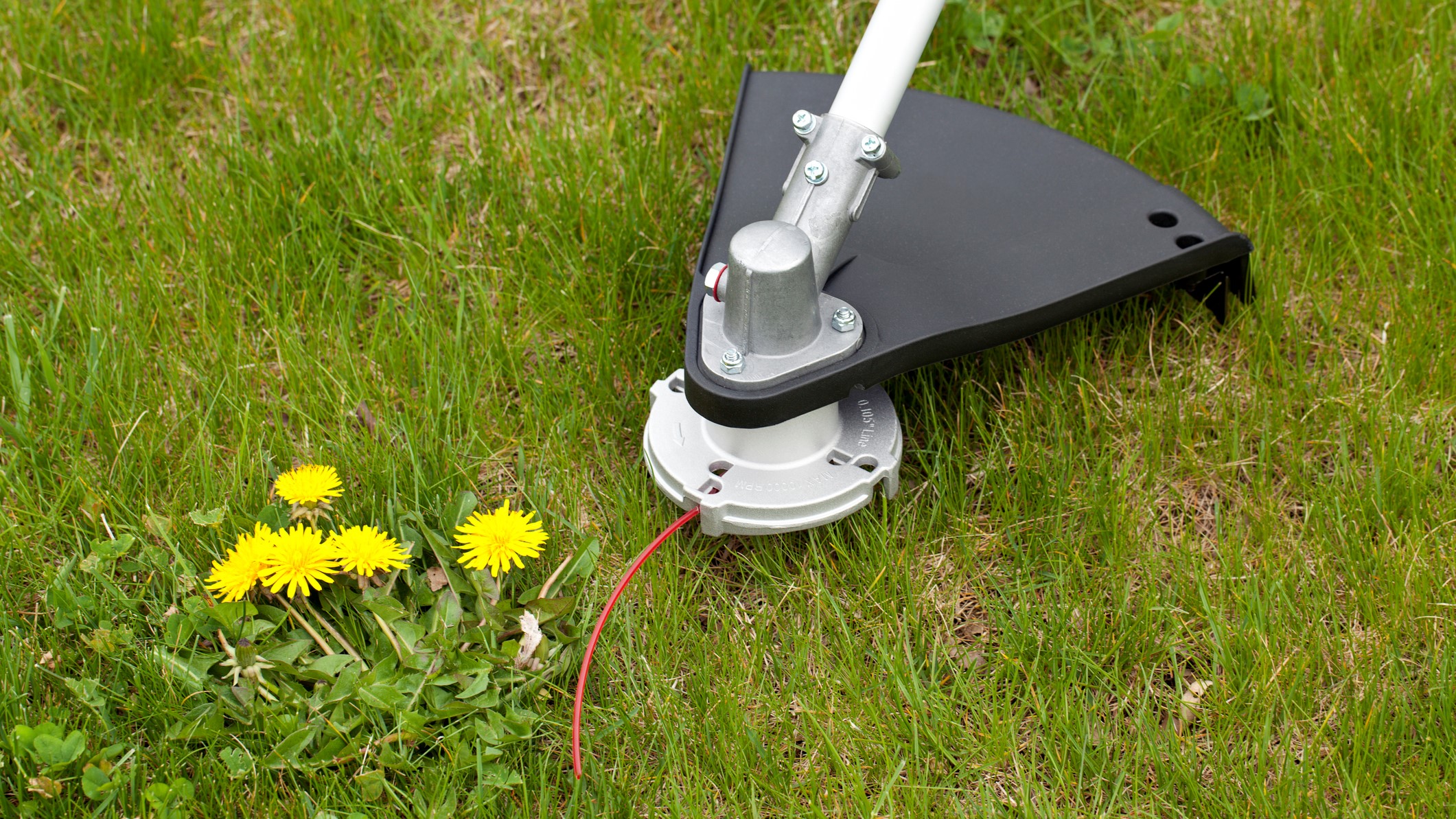Choosing between the best electric weed eaters is not an easy task. As long as they succeed in cutting those pesky weeds down to size, it's job done, right? Well, almost, but there are still some important differences to consider that could make your weed wacking even more pleasurable than it probably already is.
One of the biggest factors in selecting an electric weed eater is how it feeds the string. In this respect, there are two types of electric string trimmer to consider: automatic feed and bump feed trimmers.
The first automatically advances the string and the second requires you to tap the head on the ground to move the string along. To save you the time of worrying about which is the best weed eater for you, we've laid bare the advantages and disadvantages of both types of trimmer feed.
Automatic feed electric weed eaters
The automatic advancing mechanism works by sending out more line when the string gets too short. Importantly, if you have an automatic feed electric string trimmer, the last thing you're going to want to do is tap the head on the sidewalk because it will break it and negate your warranty.
The advantages of automatic feed
The great thing with an automatic feed weed eater is that instead of focusing on the length of the string, you can pay attention to where the grass ends and the prize daffodils begin. Since you don't have to pause to tap the head on the ground, you can finish trimming faster, leaving more time to dig out the lawn edger and fire up the lawn mower to give your garden the complete works. Automatic feed string trimmers are more prevalent in stores than bump feed trimmers, so shopping for one will be a breeze as well.
The drawbacks of automatic feed
As with any machine with moving pieces, the motor on an automatic feed electric weed eater is bound to break or malfunction at some point. If the motor still works but it doesn't feed the string properly, you may spend a lot of time trying to fix the line feed jam. Fixing the motor on the automatic feed may be more difficult and expensive than it would be to replace the whole unit.

Bump feed electric weed eaters
With a bump feed weed eater, when you press the head of your trimmer against a flat surface, it squeezes a spring in the head of the string trimmer. This action releases string from the spool so you have a line with which you can cut down debris. The bump feed electric trimmer uses centrifugal force to pull the string from the spool.
The advantages of bump feed
When you have a bump feed string trimmer, you manually advance the string by gently bumping it on the ground. This gives you control over how much line you use. The bump feed is also a more simplified system for advancing string, so if it stops working, it's more likely you can make repairs quickly and easily. Keep in mind that most electric string trimmers also come with a warranty.
The drawbacks of bump feed
With a bump feed electric weed eater, you'll need to pay a little more attention and take action when it's time to advance the string - it's your responsibility to keep things moving. Another potential problem comes if you push down on the head of your trimmer too hard, as it can crack the spool or damage the spring. Even if you're gentle with your string trimmer, over time the spring in the head will wear out and you'll need to replace it.
Pre-wound spools vs. wind your own spools
If you experience feed problems, they are likely to originate with imperfections in the way the line is wound on the spool. If the line isn't just right, the feed can jam.
Pre-wound spools can be purchased from the manufacturer or a generic distributor. However, they can be expensive since you're paying for the line, the new spool, and for the manufacturer to wind on the string. That said, if you don't want to mess with feed problems, you may feel that spending the extra money for the pre-wound spools is worth it.
On the other hand, if you're looking to save money, you may want to re-wind your own spools. Usually, the owner manual for your electric string trimmer has instructions on how to re-wind you electric string trimmer's spool. As long as you carefully wind the spool, it shouldn't have trouble advancing. You can usually purchase large amounts of line for much cheaper than you can a pre-wound spool. The trade-off is that you have to wind the string yourself.
Should you bump or go auto?
Whether you decide to go with the automatic feed or bump feed electric weed eater essentially comes down to your personal preference. For a less attentive weed trimming experience, the automatic feed option is ideal, but will likely cost more and could break. If you're happy to bump your way along the garden, it will be the cheaper option, but wear and tear could eventually prove a problem.

